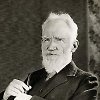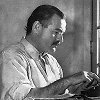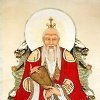[The equilibrium model describes systems] which, in moving to an equilibrium point, typically lose organization, and then tend to hold that minimum level within relatively narrow conditions of disturbance.
p. 40 as cited in: Jacquie L'Etang, Magda Pieczka (2006) Public Relations: Critical Debates and Contemporary Practice. p. 335. - Sociology and modern systems theory (1967)
![[The equilibrium model describes systems] which, in moving to an equilibrium point, typically lose organization, and then tend to hold that minimum...](https://img.libquotes.com/pic-quotes/v1/walter-f-buckley-quote-lbd2h9s.jpg)
![[The equilibrium model describes systems] which, in moving to an equilibrium point, typically lose organization, and then tend to hold that minimum...](https://img.libquotes.com/pic-quotes/v2/walter-f-buckley-quote-lbd2h9s.jpg)
![[The equilibrium model describes systems] which, in moving to an equilibrium point, typically lose organization, and then tend to hold that minimum...](https://img.libquotes.com/pic-quotes/v3/walter-f-buckley-quote-lbd2h9s.jpg)
![[The equilibrium model describes systems] which, in moving to an equilibrium point, typically lose organization, and then tend to hold that minimum...](https://img.libquotes.com/pic-quotes/v4/walter-f-buckley-quote-lbd2h9s.jpg)



















